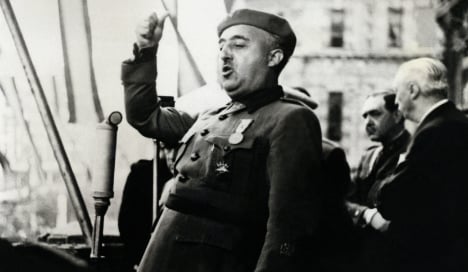Guadiana del Caudillo in southwest Spain was founded in the 1950s by the regime of Franco, whose title was “El Caudillo” or “The Commander”, with the goal of developing agriculture in this poor, rural region.
In a video published by online newspaper Hoy, Francisco Moreno said the “first measure” he will take as mayor of Guadiana del Cuadillo will be to propose two motions in the municipal council to remove the two last words from the town's name, and all other “Francoist symbols”.
Moreno's Socialists came out on top during Sunday's local elections in the town, defeating the incumbent mayor from far-right party Vox who had for years refused to change its name.
Guadiana del Caudillo perd el cognom franquista https://t.co/CmUcrbglwi pic.twitter.com/2ntx38ig27
— CATzona (@CATzona_com) May 30, 2019
Moreno is expected to be sworn in as the mayor of Guadiana del Cuadillo, which is home to some 2,500 people, in mid-June.
Several other towns founded during the dictatorship still include an homage to Franco in their name, such as Alberche del Caudillo and Llanos del Caudillo in the region of Castilla-La Mancha south of Madrid.
A 2007 law requires Spanish mayors to remove Francoist symbols from public buildings and spaces.
But many conservative city councils have refused to respect the law, arguing it would only reopen old wounds.
The outgoing mayor of Guadiana del Caudillo, who recently joined Vox after leaving the conservative Popular Party, had fiercely rejected calls to change the town's name and kept a plaque commemorating Franco on display in the town hall.
The failure to respect the 2007 law has cost the town about 400,000 euros ($445,000) in subsidies from the regional government, according to Moreno.
Spanish Prime Minister Pedro Sanchez's Socialist government is planning to exhume Franco's remains from a vast mausoleum near Madrid on June 10 and move them to a more discreet cemetery in the Spanish capital.
Franco came to power after Spain's 1936-39 civil war, which was triggered by his rebellion against an elected Republican government.
He ruled Spain with an iron fist until his death in 1975.
READ ALSO: Franco will be exhumed in June despite family opposition



 Please whitelist us to continue reading.
Please whitelist us to continue reading.
Member comments